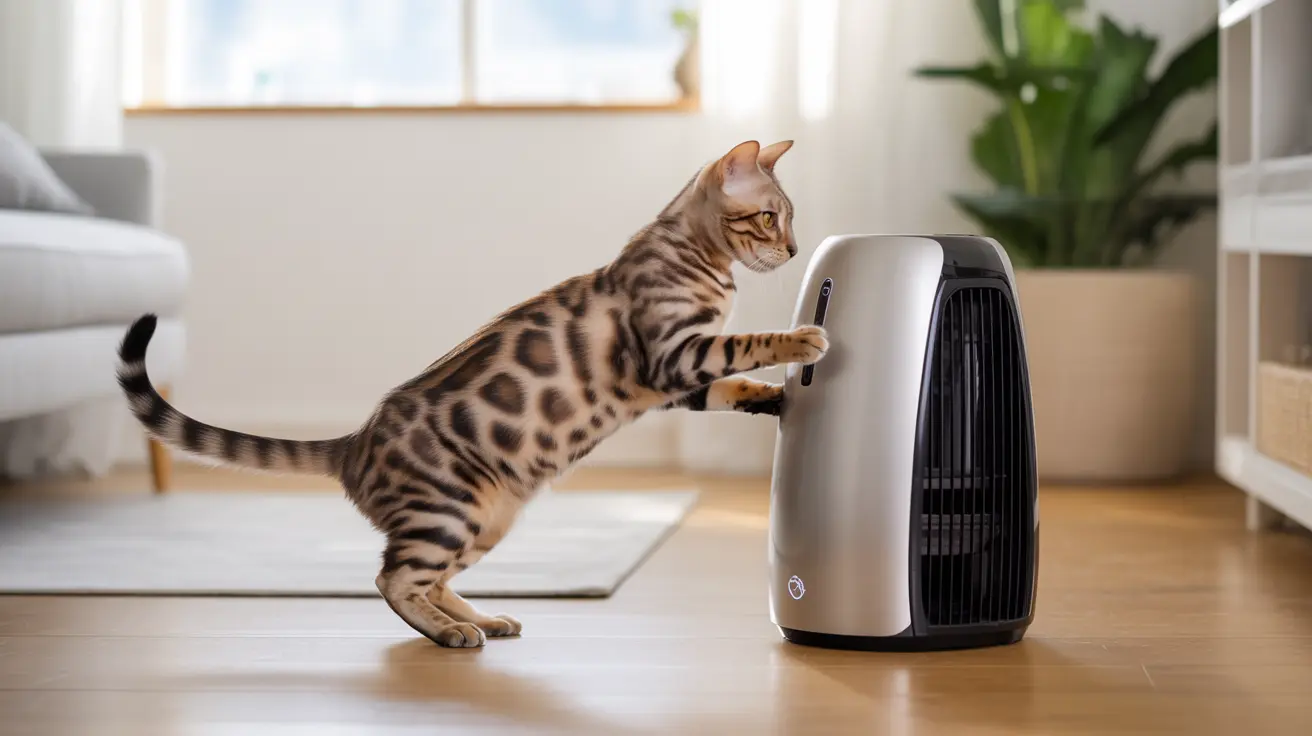How Air Purifiers Combat Cat Litter Odors
Air purifiers work through a multi-stage filtration process specifically designed to tackle both particles and odors. The most effective units for managing cat litter smell combine two essential components:
HEPA Filtration
High-Efficiency Particulate Air (HEPA) filters capture up to 99.97% of airborne particles as small as 0.3 microns. This includes cat litter dust, dander, and other particulates that can carry odor molecules.
Activated Carbon Technology
The real hero in fighting litter box odors is activated carbon filtration. These specialized filters contain highly porous carbon material that traps and neutralizes odor-causing molecules, including ammonia from cat urine.
Choosing the Right Air Purifier for Litter Box Odors
Essential Features to Consider
When selecting an air purifier for cat litter odors, look for:
- Substantial activated carbon filter
- True HEPA filtration
- Appropriate room coverage capacity
- Multiple fan speeds
- Low noise operation
- Energy efficiency
Placement and Operation Tips
The effectiveness of your air purifier largely depends on proper placement and usage:
- Position the unit in the same room as the litter box
- Keep it 5-10 feet away from the box to avoid disturbing your cat
- Ensure good airflow around the purifier
- Run it continuously for best results
Maximizing Odor Control Results
While air purifiers are effective, they work best as part of a comprehensive approach to litter box odor management:
Daily Maintenance
- Scoop the litter box at least once daily
- Monitor filter replacement schedules
- Keep the area well-ventilated
Long-term Care
- Replace litter completely every 2-4 weeks
- Clean the litter box thoroughly monthly
- Change air purifier filters as recommended
Frequently Asked Questions
How do air purifiers with HEPA and activated carbon filters reduce cat litter box odors?
These purifiers use a two-stage approach: HEPA filters trap physical particles like dust and dander, while activated carbon filters absorb and neutralize odor-causing molecules through a process called adsorption.
Can using an air purifier alone eliminate litter box smell, or do I still need to clean regularly?
Regular cleaning is still essential. Air purifiers complement but don't replace proper litter box maintenance. They work best when combined with daily scooping and routine box cleaning.
What features should I look for in an air purifier to effectively combat cat litter odor?
Look for units with both HEPA and substantial activated carbon filtration, appropriate room coverage, multiple fan speeds, and quiet operation. Smart features like air quality sensors can be beneficial but aren't essential.
Where is the best place to position an air purifier to reduce litter box smells without disturbing my cat?
Place the purifier in the same room as the litter box, about 5-10 feet away. Ensure good airflow around the unit while keeping it far enough from the box that noise won't discourage your cat from using it.
Are there any health benefits for my family and pets when using air purifiers to manage cat litter odor?
Yes, air purifiers provide multiple health benefits beyond odor control. They remove allergens, reduce airborne bacteria, and improve overall air quality, creating a healthier environment for both humans and pets.
Conclusion
Air purifiers equipped with HEPA and activated carbon filters can significantly reduce cat litter odors when used correctly. While they're not a complete solution on their own, they're an valuable tool in maintaining a fresh-smelling home with cats. Remember to combine air purification with regular litter box maintenance for the best results.






